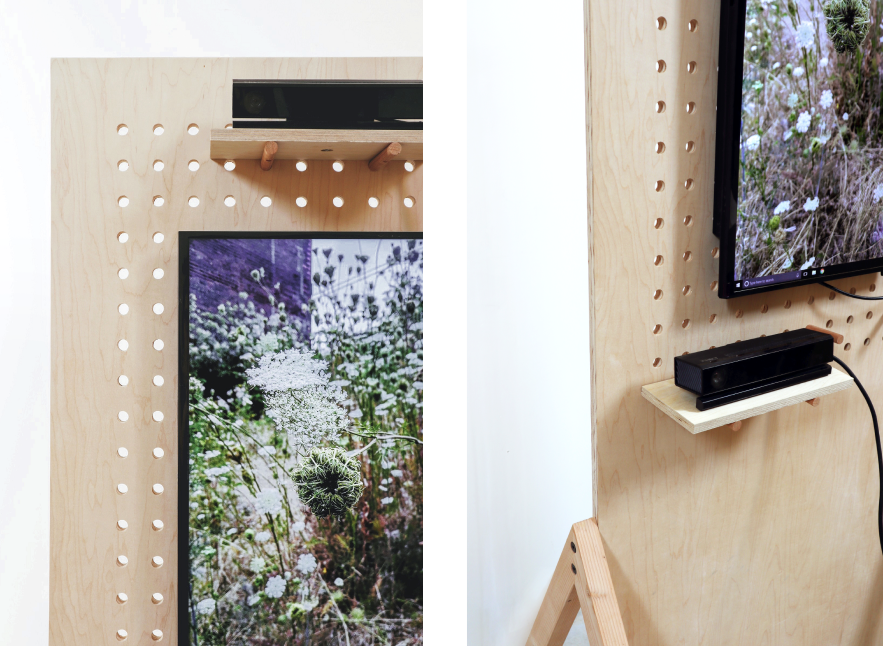TensorFlow
Google Developer Marketing
Instrument
2020
A suite of interactive experiences designed to showcase the capabilities of the TensorFlow library.
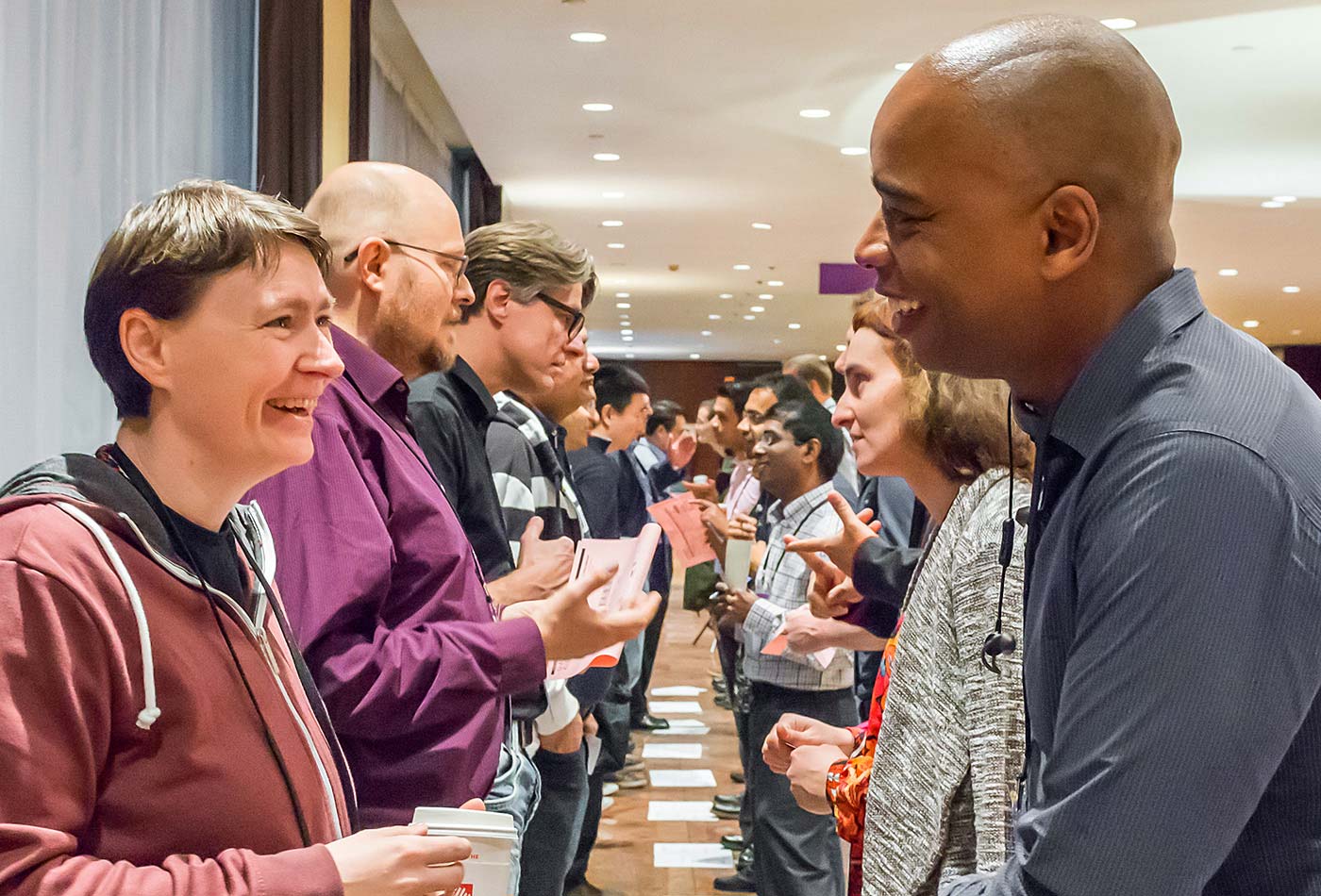
TensorFlow is an end-to-end open source platform for machine learning, a library that facilitates makes machine learning accessible to all. Representing Google’s contribution to open-sourced machine learning, it has forever changed the landscape of numerical computation and deep learning.
Released in October 2019, Tensorflow 2.0 represents a rethinking of the framework. With a need to evangelize the updates and changes to the worldwide developer audience, the TensorFlow team at Google sought to share - and celebrate - the new release.
Google’s Development Marketing team partnered with Instrument to create a series of experiences that would accompany TensorFlow events across the globe, concluding at TensorFlow World in San Francisco.
Released in October 2019, Tensorflow 2.0 represents a rethinking of the framework. With a need to evangelize the updates and changes to the worldwide developer audience, the TensorFlow team at Google sought to share - and celebrate - the new release.
Google’s Development Marketing team partnered with Instrument to create a series of experiences that would accompany TensorFlow events across the globe, concluding at TensorFlow World in San Francisco.






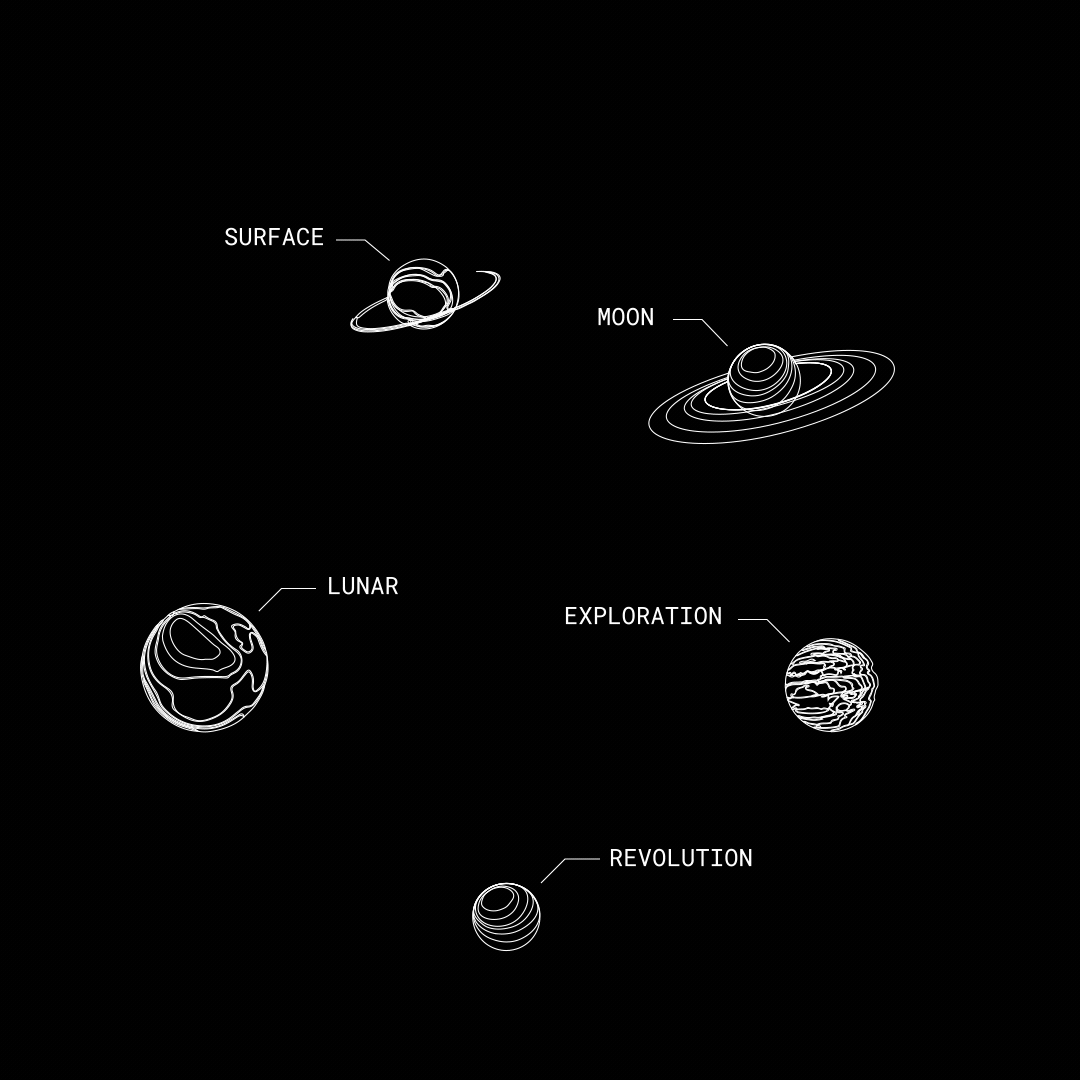
01
Natural Language Processing

02
Emotion Classification
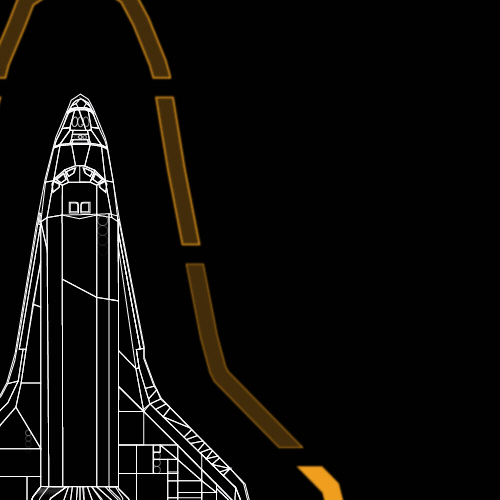
03
Pose Detection
In designing the games, the Instrument team sought to contextualize the experiences. Balancing the interactivity offered by Tensorflow 2.0 with the aesthetics of classic 90’s arcade gameplay allowed for consistent use and recognition alongside warm feelings of nostalgia.
A key element of the experiences was using a wide range of Tensorflow Models. The team created a system of three games that were consistent in appearance but ranged strongly in styles of gameplay to allow for game mechanics using semantic understanding, emotion classification, and body positioning.
A key element of the experiences was using a wide range of Tensorflow Models. The team created a system of three games that were consistent in appearance but ranged strongly in styles of gameplay to allow for game mechanics using semantic understanding, emotion classification, and body positioning.
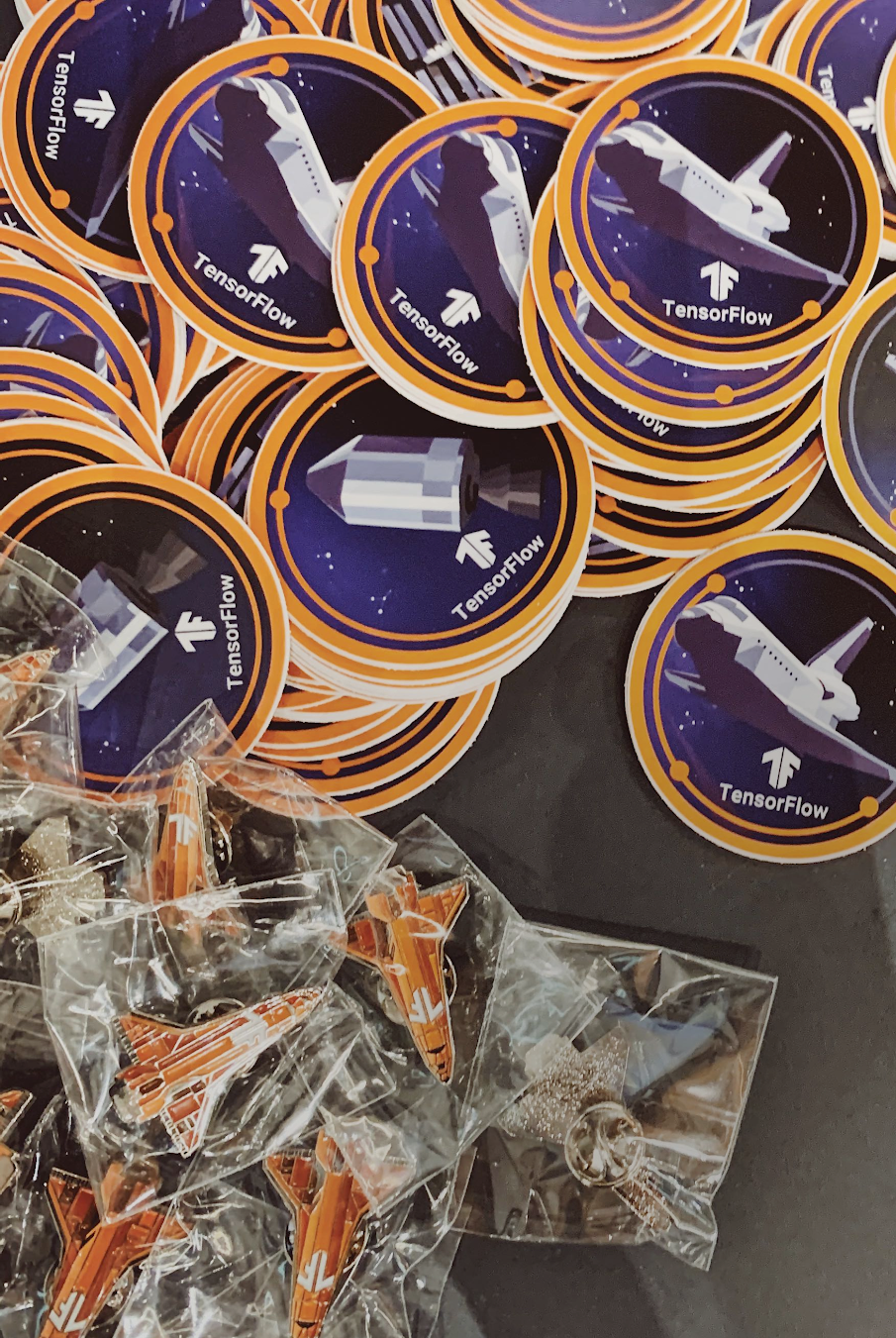
Adding to the appeal of the interactive experiences, we designed a range of goods to be distributed at the events that corresponded to each of the games and their leveling systems.
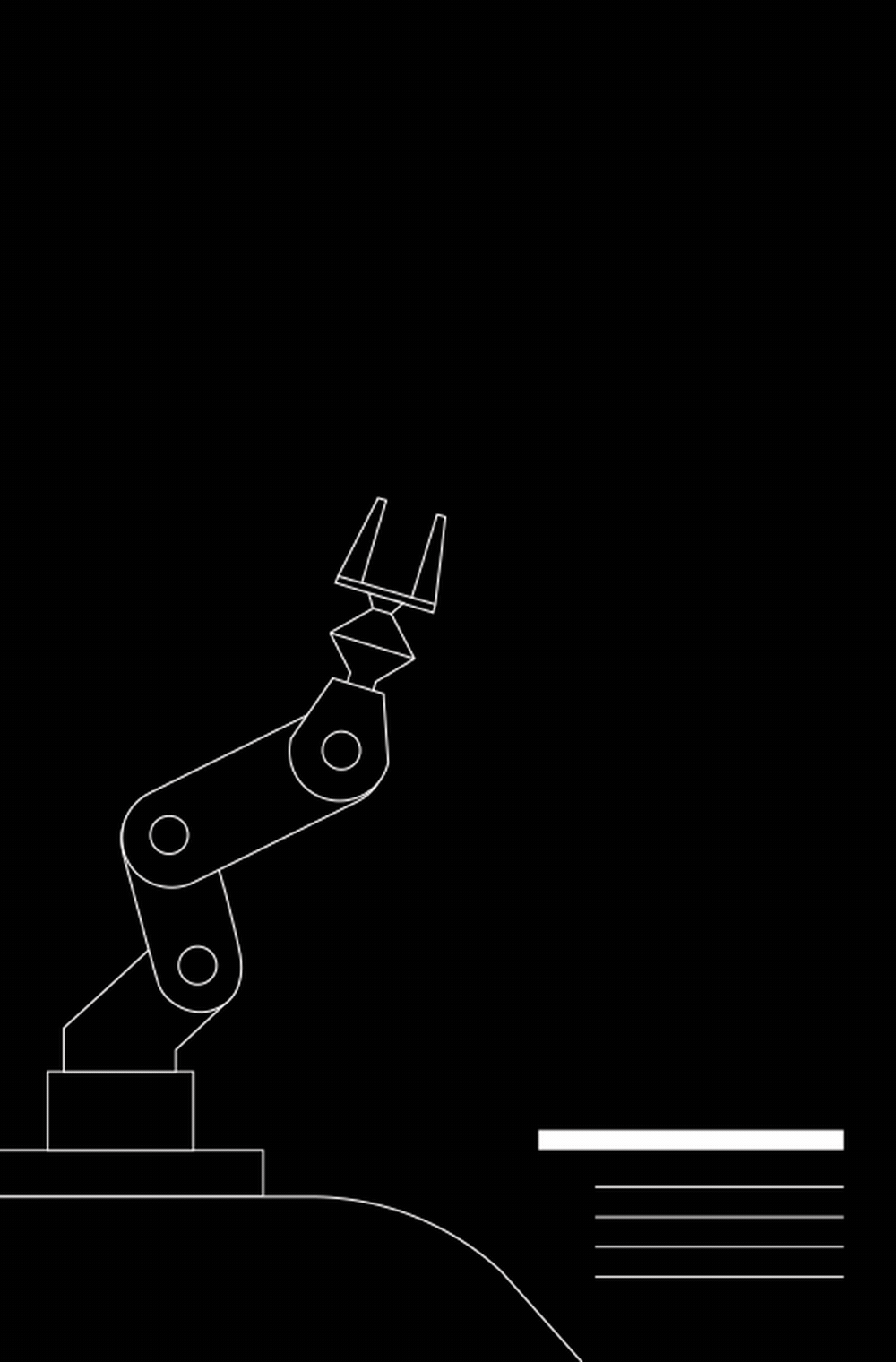

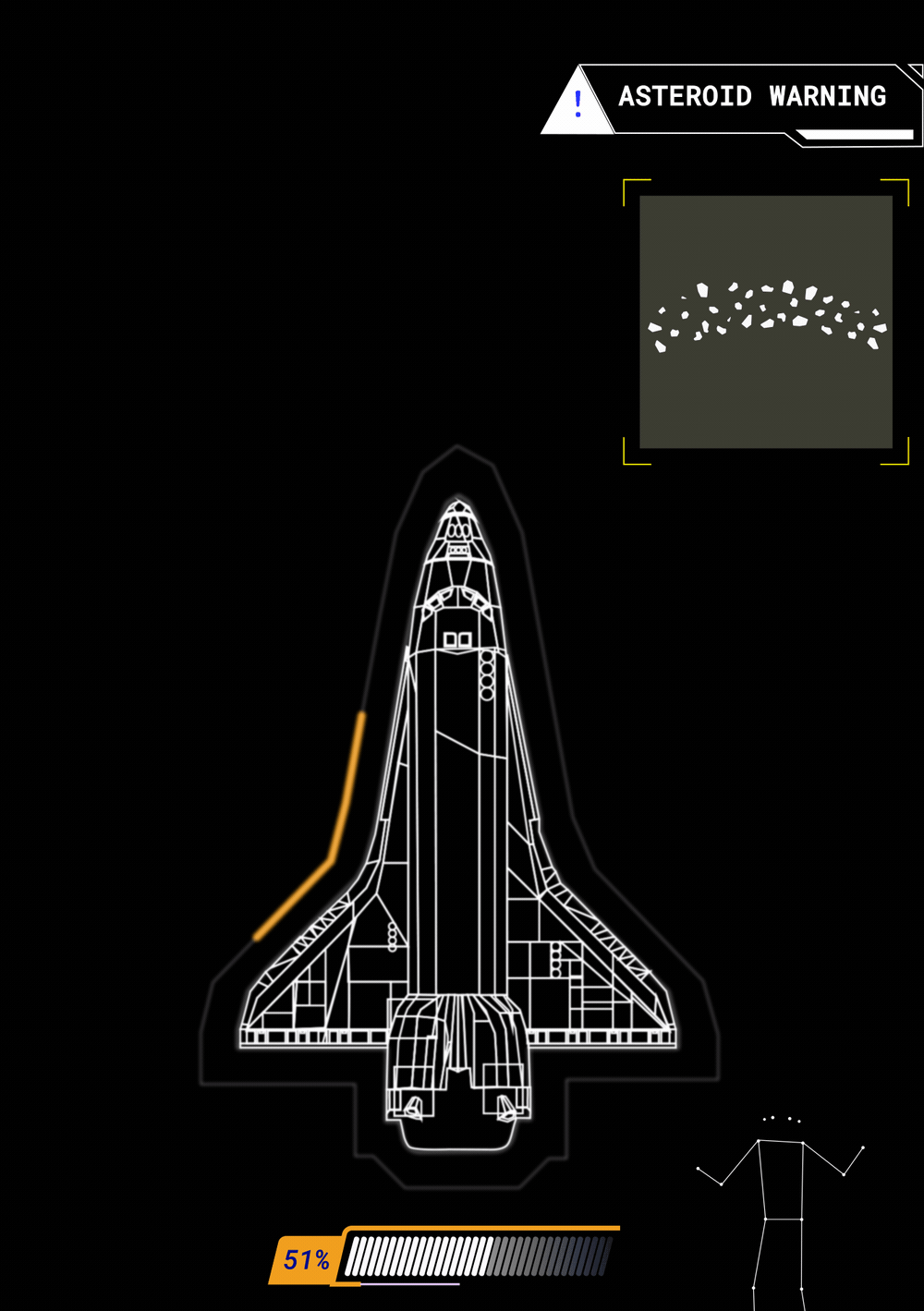
This project required a novel concepting approach and a close partnership of development and design. Early stage concepting included gaining familiarity with TensorFlow models and rapid ideation, which allowed the team to quickly grasp what would be effective and tangible as an outcome.
The games are designed not so much to educate about the models themselves, but instead to provoke excitement and imagination about the opportunities provided by Machine Learning.
The games are designed not so much to educate about the models themselves, but instead to provoke excitement and imagination about the opportunities provided by Machine Learning.


In building this series of spatial, interactive projects, the team sought to prototype in a way that would avoid limiting use of the experience to a narrow group of users. In generating our final floor model, the team carefully tested for positioning and recognition, allowing for the largest possible range of users.
︎︎︎ Back
Next ︎︎︎
